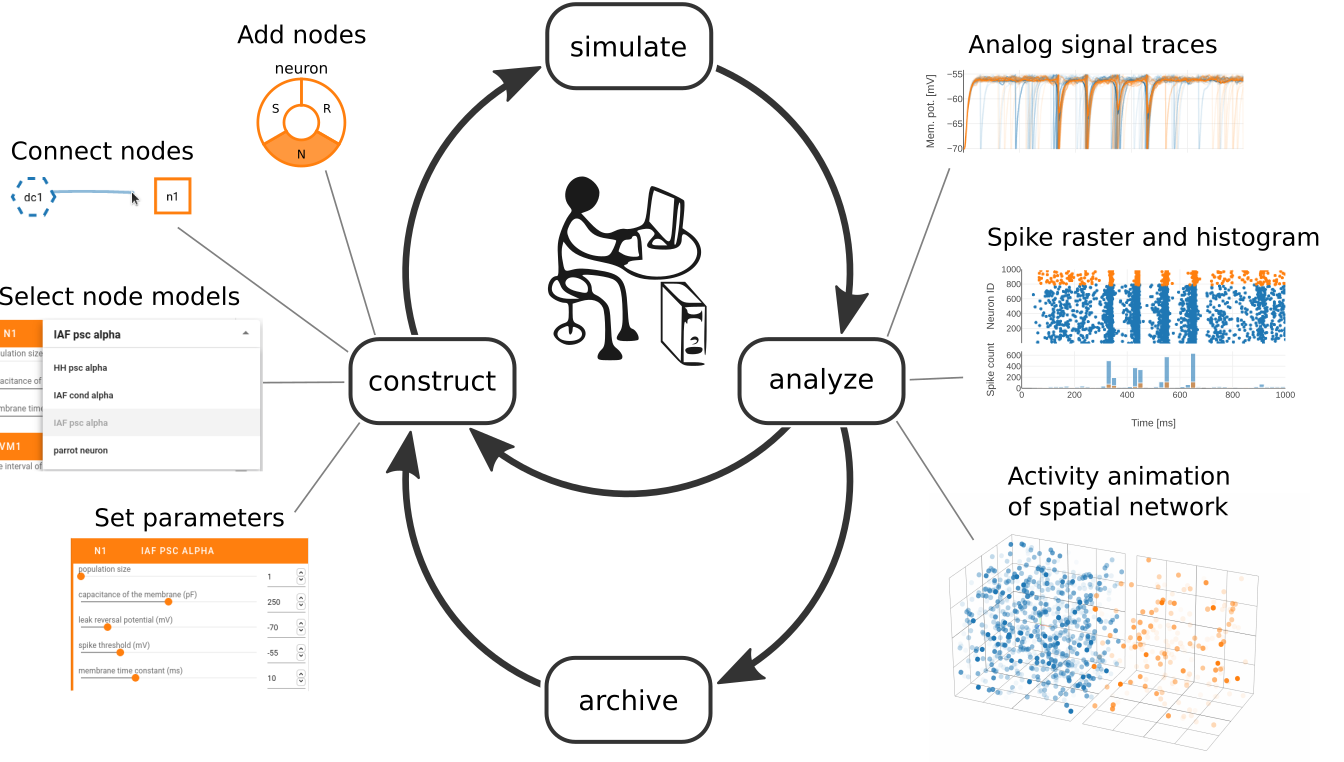NEST Desktop
NEST Desktop
An educational web application for neuroscience

Simulation software for spiking neuronal network models matured in the past decades regarding performance and flexibility. Nevertheless, the entry barrier remains high for students and early career scientists in computational neuroscience since these simulators typically require programming skills and a complex installation. Here, we describe an installation-free graphical user interface (GUI) running in the web browser, which is distinct from the simulation engine running anywhere, on the student’s laptop or on a supercomputer.
NEST Desktop is a web-based GUI application for NEST Simulator, an advanced simulation tool for the computational neuroscience. The app comprises graphical elements for creating and configuring network models, running simulations, as well as for visualizing and analyzing the results. NEST Desktop allows students to explore important concepts in computational neuroscience without the need to learn a simulator control language before.
Our experiences so far highlight that NEST Desktop helps advancing both quality and intensity of teaching in computational neuroscience in regular university courses. We view the availability of the tool on public resources like the European ICT infrastructure for neuroscience EBRAINS as a contribution to equal opportunities.
Useful links
- Offical page: NEST Desktop
- Documentation: NEST Desktop — NEST Desktop documentation
- Video about first steps in NEST Desktop: https://www.youtube.com/watch?v=lQHppErKoG4
- Applications:
Funding
This project has received funding from the European Union’s Horizon 2020 Framework Programme for Research and Innovation under Specific Grant Agreement No. 785907 (Human Brain Project SGA2) and No. 945539 (Human Brain Project SGA3), the European Union’s Horizon Europe Programme under the Specific Grant Agreement No. 101147319 (EBRAINS 2.0), the Helmholtz Association Initiative and Networking Fund under project number SO-092 (Advanced Computing Architectures, ACA) and the “Bundesministeriums für Bildung und Forschung” (BMBF) for the grant DATIPilot. This work was supported by the DFG Excellence Cluster BrainLinks-BrainTools (grant EXC 1086).
